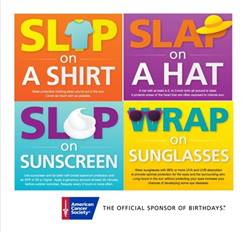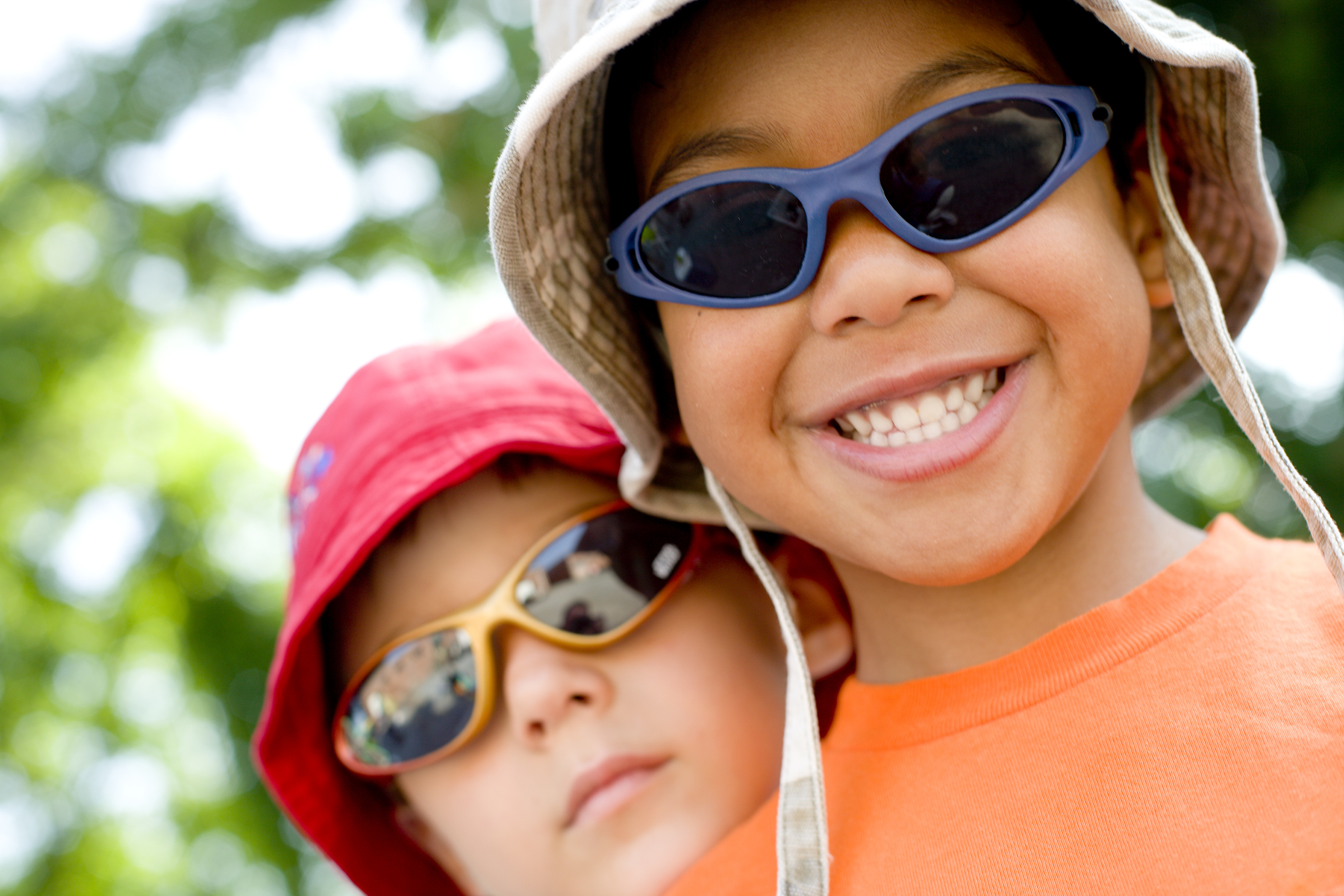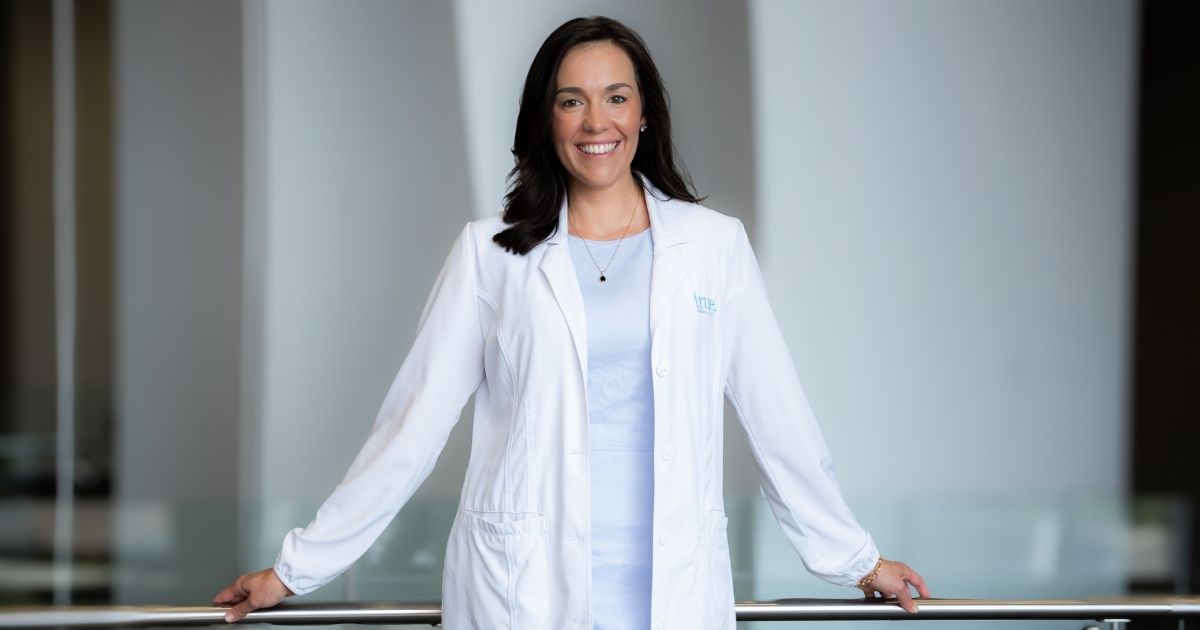With temperatures soaring this summer, it's common for people to be concerned about the dangers of heat exhaustion and dehydration. But another killer lurks in the sun’s rays, in the form of ultraviolet (UV) radiation.
Everyone is exposed to naturally occurring solar UV radiation. However, with the increasing trends of sunbathing and tanning beds among young adults and women, a tanned appearance has become a misguided sign of a good look and good health. Additionally, studies have shown that many adults and adolescents in the U.S. do not regularly protect themselves when outdoors on sunny days.
July is UV safety month, and the American Cancer Society is encouraging everyone to take steps to protect themselves from the dangerous effects of UV rays, which cause the vast majority of skin cancer.
More than one million cases of basal cell or squamous skin cancer (nonmelanoma) and seventy-seven thousand cases of malignant melanoma (the most serious form of skin cancer) are expected to be diagnosed in 2013 in the United States. The Society estimates that 12,650 people will die from skin cancer in 2013, mostly due to malignant melanoma, which is among the fastest rising cancers in the U.S.
Fortunately, skin cancer also is one of the most preventable forms of cancer. To help prevent skin cancer, stick to the following sun-safety practices:
- Wear protective clothing in the sun; wear a hat that shades the face, neck and ears; and plan outdoor activities to avoid the midday sun.
- Examine the skin regularly. Suspicious lesions or progressive changes in a lesion’s appearance or size should be evaluated promptly by a physician.
- Wear sunglasses to protect eyes from UV light.
- Use a sunscreen with a sun protection factor (SPF) of 30 or higher and apply a generous amount (about a palmful) fifteen to twenty minutes before going outdoors. Reapply sunscreen as necessary throughout the day, especially after swimming, perspiring, or towel drying. Use sunscreen even on hazy days.
- Avoid artificial sources of UV light (sunlamps, tanning beds).
 An easy way to remember these important sun safety tips is with the catch phrase: "Slip! Slop! Slap! Wrap!" Slip on a shirt, Slop on sunscreen (SPF 30 or higher), Slap on a hat, and Wrap on sunglasses. Pay attention to your time spent in UV rays—stay out of the sun during peak times (10 a.m. to 4 p.m.) and remember that a nice tan is never worth risking your life.
An easy way to remember these important sun safety tips is with the catch phrase: "Slip! Slop! Slap! Wrap!" Slip on a shirt, Slop on sunscreen (SPF 30 or higher), Slap on a hat, and Wrap on sunglasses. Pay attention to your time spent in UV rays—stay out of the sun during peak times (10 a.m. to 4 p.m.) and remember that a nice tan is never worth risking your life.
In addition to taking steps to prevent skin cancer, it's also important to be on the lookout for the signs of skin damage and skin cancer. Immediate adverse effects of excessive exposure are sunburn and eye damage, whereas longer effects include premature aging of the skin and skin cancer. Skin cancer is highly curable if detected in its early stages. The best way to detect skin cancer early is to examine your skin regularly and recognize changes in skin growths or the appearance of new growths. Talk to your physician about any changes you notice or areas of concern. For more information, call the American Cancer Society at 800-227-2345 or go to cancer.org.
Source and photo: The American Cancer Society is a global grass-roots force of more than three million volunteers saving lives and fighting for every birthday threatened by every cancer in every community. As the largest voluntary health organization, the Society's efforts have contributed to a twenty percent decline in cancer death rates in the U.S. since 1991, and a fifty percent drop in smoking rates. Thanks in part to our progress, nearly fourteen million Americans who have had cancer and countless more who have avoided it will celebrate more birthdays this year. As we mark our one hundredth birthday in 2013, we're determined to finish the fight against cancer. We're finding cures as the nation’s largest private, not-for-profit investor in cancer research, ensuring people facing cancer have the help they need and continuing the fight for access to quality health care, lifesaving screenings, clean air, and more. For more information, to get help, or to join the fight, call us anytime, day or night, at 800-227-2345 or visit cancer.org.




